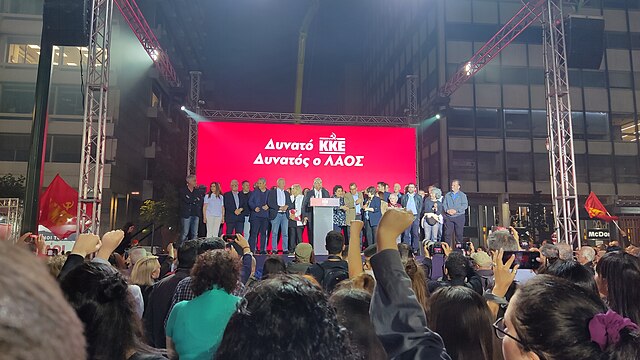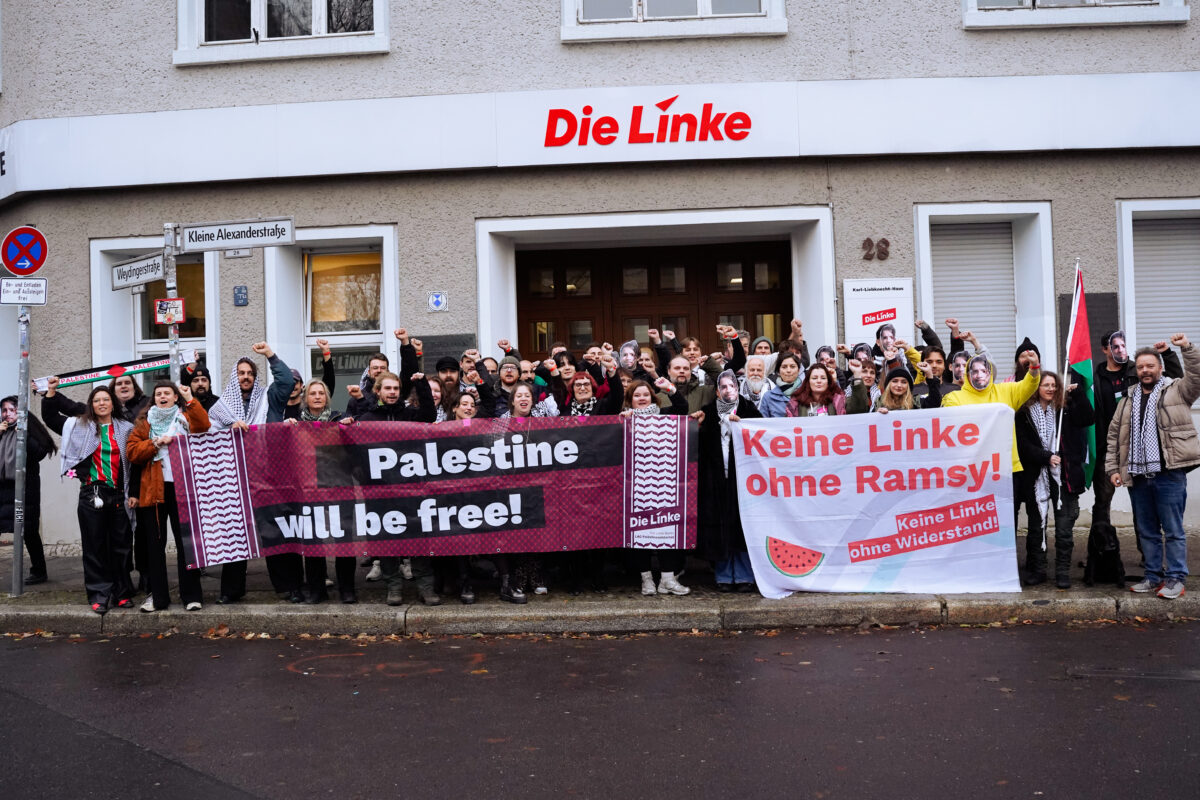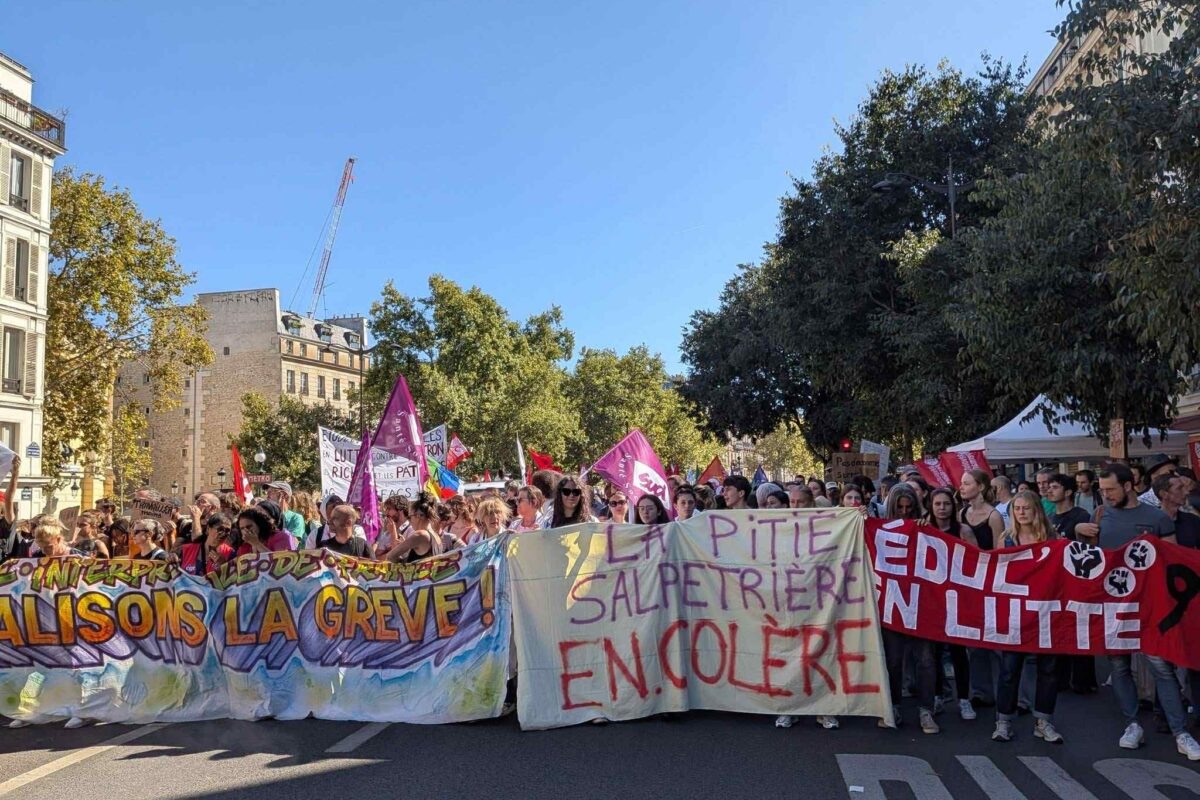NOTE: this article was written before yesterday’s elections when New Democracy made considerable gains
On May 21 Greece goes to the polls to elect a new parliament. The term of the ruling government under right wing New Democracy expires in July.
The vote will take place under a new (as close as possible to) proportional representation system in the 300-seat Parliament — posing difficulties for any party to attain an absolute majority. This opens the way either for coalition governments or for a second round of voting.
Until three months ago and despite serious failures, Prime Minister Kyriakos Mitsotakis appeared to be in control of the game. His government has already passed a law changing the representative system, so that the next elections will take place with the new system, which grants seats to the winner of the elections, making it possible for them to form a government. New Democracy’s plan was to head straight for a second round and get re-elected. However, today it does not seem to work.
The horrible train accident in Tempi on February 28 left 57 people dead and sparked a series of strikes and protests, which changed the political context in the country. But the discontent was not born suddenly because of Tempi. It was the fruit of prolonged resistance to the policies of the government.
Today a big part of the Greek society knows that New Democracy has been a murderous government of poverty, racism, sexism, environmental destruction and war mongering. Kyriakos Mitsotakis had set three main objectives when he became Prime Minister in 2019: to impose brutal neoliberal measures so that the profits of the Greek bourgeoisie increase, to pass measures against the working class and trade unionism, and to attack ideologically the Left and leftist ideas. The truth is that he increased the profits of the Greek bourgeoisie, stealing from the income of the working class. But he did not succeed at all in his goal to smash the working class and the left. It’s quite the opposite, trade unionism has recovered and spread to new “precarious” sectors and left ideas are a hope for better days. All recent polls show that the majority demands the nationalization of the main sectors of economy.
New Democracy in office: Sexism, lies and video tapes (and much more)
OECD statistics show that the average real wage in Greece in 2022 fell by 7.3%. According to Eurostat, the average per capita income in the country in 2022 was 68% of the average of the 27 EU countries, compared to 85% in 2009. According to the national official data, income inequality within the country increased by 2 percentage points between 2018 and 2020, which is the last year for which we have figures. In fact, it is some 2% higher (worse) than the average of the 27 EU countries.
New Democracy tried to handle things by granting subsidies to the poorer family households, as salaries are impossible to follow inflation and soaring prices in basic needs. There is an “energy pass” to make up for soaring electricity and gas prices, a “food pass” to balance ridiculously high prices for basic needs like milk, cheese, meat and vegetables, and an “Easter” pass for vacations! This has created a lack of security and dignity and evidently discontent, but the government claims that this is the only way for Greek capitalism to go forward and consequently for the working class to evidently benefit. However, reality contradicts them: Greece is the only country in the EU and perhaps the only country in the world where GDP is some 20% below what it was in 2009. It is the epitome of the failure of the European vision of Greek capitalism. At the same time the national debt amounts 420 billion Euros, some 120 billion higher than in 2009 when Greece entered the austerity memoranda which would supposedly manage the crisis.
Their hopes of recovery and catching up to the so called “investment grade” are sinking against the international backdrop of bank failures in the US and Europe. At a European Union level, the system is gearing up for a new round of austerity, as revealed by the Commission’s new “economic governance” proposal released on April 26.
To control action from the organized working class, New Democracy passed the notorious “Chatzidaki’s law” on labor affairs, named after the notorious right-wing minister who compiled it, which scraps previous achievements of the trade union movement and trade unions themselves, by introducing voting via email and making strike action an almost impossible goal. But so far it looks that trade unions have defied the law and continue strike actions. This was confirmed and ultimately visible with the two huge general strikes on March 8 and 16.
With all official mass media (TV channels, press and news web pages) being controlled by friends and collaborators of New Democracy (and being heftily subsidized by the state), the government appeared unscathed by their failures. The media presented an omnipotent cabinet, supposedly enjoying public support. Protests and strikes were absent from the newsfeed or commented as insignificant events plotted by traitors of the country.
Nevertheless, in the summer of 2022, what started as a complaint by journalist Thanasis Koukakis about his mobile being tapped grew to a huge scandal, with some 33 people having been found to have traces of the illegal spyware Predator on their devices. The list included PASOK leader Nikos Androulakis, members of the Cabinet and members of their families, politicians in the main opposition Syriza party, journalists and media professionals. Following protests, the government finally acknowledged it had wiretapped Androulakis’s phone — a move it called legal but wrong. Mitsotakis tried to exonerate himself by firing two top government officials, but the matter did not fade away, despite the claims that it had to do with “national security matters”, that is concerns from rival Turkey, with whom Greek militarism under New Democracy has engaged in a mad race for dominance in the region.
Last but not least is the racist policy of New Democracy, which has intensified illegal push-backs of refugees at the border with Turkey and at the islands, resulting in hundreds of innocent people being killed. On May 18, an article on the New York Times confirmed that the Greek government is putting refugees on rafts and sending them to drown.
Resistance from below
The collapse of the government of Kyriakos Mitsotakis was not a result of gradual decay and in any case did not come from within parliament, where New Democracy enjoyed a relative calmness, mainly because Syriza did not provide any serious opposition and a lot of important laws passed. We have described in previous articles in this webpage and above, that during the last four years numerous struggles challenged the policies of the ruling class and their favourite government. These burst inside the working class, the universities, included political issues to defend democracy and stop fascism and Nazism and demonstrated the potential inside the Greek society to fight back. Most of them ended in compromise, a few lost, some others won (for example police forces never managed to get a foot inside university campuses), but Mitsotakis was clang in power for good, until Tempi turned the calmness upside down.
Tempi revealed the mess created by privatization, cuts in public expenses and health and safety rules and caused thousands of people to question the efficiency of the government’s measures. A recent poll among 19-34 year old citizens reveals that the majority of young people are now for a strong public sector, 81% will go to the polls, and at the same time they don’t trust the “big” parties.
The Left
The Left in Greece has never been a marginal political force. It always shaped the political events, despite repression and military coup d’etats. This dynamic brought Syriza to the government in 2015 and contrary to the the U-turn and the betrayal of “OXI”, hundreds of thousands of people still believe that Greece has to break from austerity, militarism and challenge the ruling class. Different strategies though, do matter.
Many people angry and disgusted with New Democracy still turn to Syriza as the opportunity to get rid of Mitsotakis. The problem is not the will of these people, but the rightward shift of Syriza, which does not even promise to implement reforms, as they had done back in 2015. Instead of nationalization, Syriza talks about control of the state through “Independent Authorities”, which supposedly will control private companies but actually have been the cloak of privatization. Syriza now hosts ex-ministers of New Democracy and claims that a coalition government can include the most notorious politicians who implemented the memoranda back in 2010-12. And of course Syriza claims that the wall at the border with Turkey, which prevents refugees from entering Greece, has to remain. It is imperative to look for a left alternative.
The Communist Party of Greece (KKE) looks like the main left force; it is still loyal to Stalinism and bears no connection to most of the European CPs. Despite a recent “openness”, thanks to which several personalities disappointed by Syriza were invited into its ranks, it has an abstract strategy that “no real change can be achieved as long as we live in capitalism”. This is generally correct, but in practice it resulted in KKE not supporting progressive immediate measures, e.g. the re-nationalization of the railways after Tempi, with the argument that under capitalism this will not work! As a result, although KKE hosts a number of militants in its ranks, their energy is often spent in theoretical condemnations of capitalism and immediate achievements become an opportunist endeavour. Nevertheless, many people are turning to KKE as a left alternative to both, New Democracy and Syriza.
MERA 25 is the Greek formation of Diem 25, led by ex-Syriza minister Yiannis Varoufakis and has stood clearly against New Democracy in parliament, at times when Syriza refused to. Militants of MERA participate actively in several movements (democratic rights, youth, LGBT+ and women, environmental protests) and are quite open to discuss with other left parties. In the coming elections MERA has formed an electoral alliance with sections of Popular Unity (LAE), based on a minimum programme, in order to provide an alternative to the left of Syriza, an absolutely understandable objective. The weakness of this coalition is not in intentions, but in the continuity with the politics of Syriza back in 2015. Following the debacle of “OXI” becoming “YES”, it is imperative for the Left to provide a political explanation going deeper than the circle of the party leadership and to address a strategy for change. MERA 25 is oscillating between the denunciations of “techno-feudalism” as it calls the current economic system and a relief programme to be implemented by a progressive government. Who will form that government? Accusing Syriza is fair but not enough, when it appears as a possible leader of a governing coalition. How can we fight the “institutions” and the ruling class, which pressed Syriza’s government to capitulate?
A small example is the fuss created in the media following a statement by the press spokesman of MERA25 that “there is a possibility that the banks may close in the case of future policies proposed by MERA’s programme”. New Democracy and its media arm attacked Varoufakis with two main targets: on the one hand to bury any discussion of an alternative trajectory in the country with populist arguments of scaremongering and catastrophizing, and on the other to undermine a post-election coalition government led by SYRIZA, which would include MERA 25, on the ground that “you’ll bring chaos with Varoufakis”. Standing against the scapegoating of the right wing is absolutely necessary, but not enough to provide strategic answers on what is to be done.
Anticapitalist left
Having described the strengths and weaknesses of the reformist parties, it is important to examine any left alternative. The broad radical-anticapitalist left has never been strong in parliament but it is present in trade unions, local and regional councils (it holds numbers of counselors) and often plays a crucial role in the social movements. Its members have led strikes in public hospitals, education, universities, have fought sexism and homophobia and have been on the forefront in the successful struggle to put nazi Golden Dawn in prison and to defend immigrants and refugees. There is a constellation of organizations and parties with several ideological backgrounds, while splits, attachments to reformist parties and regroupments have always taken place.
The most serious attempt to unite these forces is undoubtedly ANTARSYA, a front founded in 2009, in the aftermath of the riots of December 2008 following the murder of 15 year old Alexis Grigoropoulos. Since then, the front has always participated in both social movements and electoral confrontations, with clear success in the first and medium to low in the second. It suffered pressures and splits towards a “broader” left, like for example during the formation of Popular Unity in 2015. Not dissolving itself for the sake of a current unity project, even when it looked promising turned out to be essential.
The previous months have seen an ongoing discussion between sections of ANTARSYA and a number of non-sectarian formations which broke from the left of Syriza and from Popular Unity. Unfortunately, so far this did not conclude to a new left front, resulting to an autonomous standing of ANTARSYA. Is it any good? Yes it is, if we want to claim political orientation to the struggles. Today we have the experience of Syriza, which appeared as a realistic alternative to get rid of the memoranda and ended up to lead new rounds of austerity. There is clearly an anti-systemic current in Greek society, it has been traced in the protests and surveyed in serious polls. Whether this current will turn to anti-capitalism or to reformism, or get disappointed from politics does matter.
Contrary to the mainstream hypocrisy that this anti-systemic mood will supposedly breed the “danger of the two edges”, ANTARSYA has greeted and supported this tendency in the streets. Standing in the elections is linked to an attempt to connect with these militants, with which we have fought harsh struggles together and turn the anti-systemic to a revolutionary political force. The pre-requisite for this is to combine its demands through a transitional program that will provide immediate answers in favour of the working class and put workers’ control at the centre. The restoration of wages and trade union power, state ownership and/or re-nationalization of social services (health, education, social insurance) and common utilities (electricity, water-supply, transport, ports etc.) are at the heart of this concept. Take for example the case of the train accident, where a transitional demand is “nationalization now under workers control” who, as it turned out, were the ones who knew how to make transport safe.
As the polling day approaches, it is likely that the formation of a coalition government will be a difficult equation and any office will be not strong enough to handle the hurdles of Greek capitalism and popular discontent. This opens all possibilities for the Greek working class and the movement to stand for the just demands described above. How the left parties will respond will be the key to winning the future struggles and to strengthening the left political alternative.
Dimitra Kyrillou is a member of the National council of Antarsya and was their candidate in Athens North-B1




